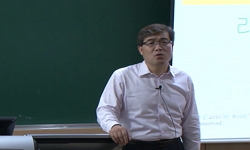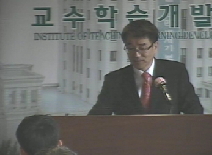본고는 요시다 시게루(吉田茂)의 전후 구상을 재검토하고자 하는 것이다. 그의 전후 구상을 이해하기 위해서는 주로 중국을 무대로 활약한 전간기 외교관으로서의 이력에 주목해야 하며, 그...
http://chineseinput.net/에서 pinyin(병음)방식으로 중국어를 변환할 수 있습니다.
변환된 중국어를 복사하여 사용하시면 됩니다.
- 中文 을 입력하시려면 zhongwen을 입력하시고 space를누르시면됩니다.
- 北京 을 입력하시려면 beijing을 입력하시고 space를 누르시면 됩니다.

요시다 시게루(吉田茂)의 전후 구상에 대한 재검토: “없는 메이지국가” 구상과 미일동맹의 현실 = Shigeru Yoshida`s post-war Design, Revisited: The Idea of Demilitarization and the Reality of US-Japan Alliance
한글로보기https://www.riss.kr/link?id=A99705619
- 저자
- 발행기관
- 학술지명
- 권호사항
-
발행연도
2013
-
작성언어
Korean
- 주제어
-
KDC
153
-
등재정보
KCI등재
-
자료형태
학술저널
-
수록면
173-203(31쪽)
- DOI식별코드
- 제공처
-
0
상세조회 -
0
다운로드
부가정보
국문 초록 (Abstract)
본고는 요시다 시게루(吉田茂)의 전후 구상을 재검토하고자 하는 것이다. 그의 전후 구상을 이해하기 위해서는 주로 중국을 무대로 활약한 전간기 외교관으로서의 이력에 주목해야 하며, 그의 제국 외교 구상에 대해 이해할 필요가 있다. 전전의 요시다는 제국주의 시대의 외교관으로서 자유무역을 중시하는 합리적 실용주의의 입장에 서 있었으나, 그 목표는 해외에서의 적극적 국익 실현이었으며 이를 주장하는 데 거리낌이 없는 전형적인 제국주의자였다. 그런 의미에서 전전의 요시다는 제국주의적 국제질서관과 자유무역론을 동시에 주장했던 공간에 위치해 있었다고 할 수 있다. 그것은 ``자유주의적 제국주의``라고도 할 만한 것이었는데, 이는 유럽적 전통에서 보면 그다지 특이할 것이 없는, 오히려 매우 ``상식적``인 노선이었으나, 일본의 국내지형에서는 정치노선으로 존립하기 어려운 조합으로 구성되어 있었다. 전후의 정치가 요시가가 서 있던 자리, 즉 동맹과 비군사적 발전을 동시에 추구하는 노선은 전전의 외교관 요시다가 그랬듯이 서로 어울리지 않는 원칙들의 기묘한 조합 위에 서 있었다. 그 결과는 ``비군사적 동맹``이라는 특이한 안보노선의 채택과 정착이었다. 그런데 전후 국가 일본의 기본 노선이었던 이러한 입장이 현실적으로 가능했던 것은 일본이 ``기지국가``였기 때문이다. 반면 재임기간에 만들어진 보수 내 반요시다 진영은 미일 동맹을 상대화시키려는 입장과 헌법 개정과 군대보유를 주장하는 입장의 넓은 스펙트럼에 걸쳐 있다. 현재 일본 정치의 전개에서 요시다의 위상이 축소되고, 요시다의 주술에서 벗어나려 하고 있는 것은 이러한 데에서 하나의 원인을 찾을수 있다.
다국어 초록 (Multilingual Abstract)
This paper attempts to reevaluate Shigeru Yoshida`s post-war design. In order to understand Yoshida`s post-war design, it is crucial to shed light on his career as a diplomat during the inter-war period, as well as to understand his framework for impe...
This paper attempts to reevaluate Shigeru Yoshida`s post-war design. In order to understand Yoshida`s post-war design, it is crucial to shed light on his career as a diplomat during the inter-war period, as well as to understand his framework for imperial diplomacy. In the pre-war period, Yoshida presented himself as a rational pragmatist that placed importance on free trade, yet hi was a classic imperialist who had no hesitation in his aggressive pursuit of national interests abroad, In that sense, it can be argued that Yoshida simultaneously advocated imperialistic international order as well as the free trade theory.While this ``liberal imperialism`` was a widely-held idea in Europe at the time, it was hardly viable as a political line in Japan`s domestic circumstances.Yoshida`s post-war stance based on the US-Japan alliance and anti-militaristic development was also a paradoxical one, just as his pre-war position as a diplomat was.As a result, Yoshida adopted a peculiar ``non-militaristic security alliance`` that took in post-war Japan.Japan as ``base state`` enabled him to adopt this basic line. On the other hand, ``anti-Yoshida`` camps that were formed during his tenure ranged in wide spectrum, from those who attempted to relativize US Japan alliance to those who propagated constitutional revision and rearmament. Here it is possible to find one of the reasons why there has been a recent political attempt to minimize Yoshida`s influence and to break free from his legacy.
동일학술지(권/호) 다른 논문
-
- 현대일본학회
- 최희식 ( Hee Sik Choi )
- 2013
- KCI등재
-
- 현대일본학회
- 이영진 ( Yung Jin Lee )
- 2013
- KCI등재
-
박정희 저격사건의 한일관계: 국제구조의 제약과 국내정치의 영향
- 현대일본학회
- 이정환 ( Jung Hwan Lee )
- 2013
- KCI등재
-
- 현대일본학회
- 한은아 ( Eun Ah Han )
- 2013
- KCI등재




 KCI
KCI KISS
KISS





